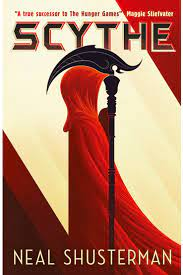Mrs.
Jewell and the wreck of the General Grant.
In May of 1866, the General Grant, ‘ a fine three-master sailing out of Boston,’ was wrecked with huge loss of life off the Sub-Antarctic Auckland Islands in the Southern Ocean, 465 kilometres from the southernmost tip of New Zealand. Only fifteen of the eighty-three people aboard survived, and despite many searches over the intervening one hundred and fifty seven years, the wreck has never been found. The General Grant was on its way to England, taking families back to their homes, some with considerable fortunes from the Australian Gold fields, not to mention a big, secret cache of gold from the London, a ship that had foundered. Newly-weds Mary and Joseph Jewell are passengers, their clothes considerably weighed down by the gold that Mary has sewn into the seams and pockets. When the nuggets are exchanged for pounds they will have enough to buy a farm in Clovelly, Joseph’s birthplace. The future looks rosy.
Until fog and swells push them off course and the worst
happens – Mary wasn’t the only one to think of sewing gold into pouches and pockets: when the ship starts to sink the weight of
the gold drags many down to a watery death, and the children – the children
have no chance. The deaths of those
innocents will remain in Mary’s nightmares for the rest of her life. And she will never know why she survived
along with fourteen others out of a complement of eighty-three: fate was either being kind, or looking for
her to play with.
Christina Sanders brings the great tragedy to superb,
terrible reality. Narrated by Mary, it
is though we are reading her journal over her shoulder as she writes,
especially when she recounts their initial attempts to light a fire so that
they wouldn’t die of the cold: five of
their six matches were damp and wouldn’t ignite; the sixth match was carefully dried by the
heat of the owner’s body, and when that last match took, everyone’s faith in
God was renewed – until the next crisis.
No-one had any idea how long it would take for another
ship to sail past, and to their horror, despite their permanent bonfires
blazing on high ground, one did do just that – sail past and keep on going. All hope disappeared for a time after that
episode, but it didn’t die completely, especially with the discovery of wild
pigs and goats, which made a great change from seal blubber. There is much to be said of the resilience of
the human spirit, and Ms Sanders tells this epic true story with grace and reverence
for man’s survival instinct. SIX STARS.




